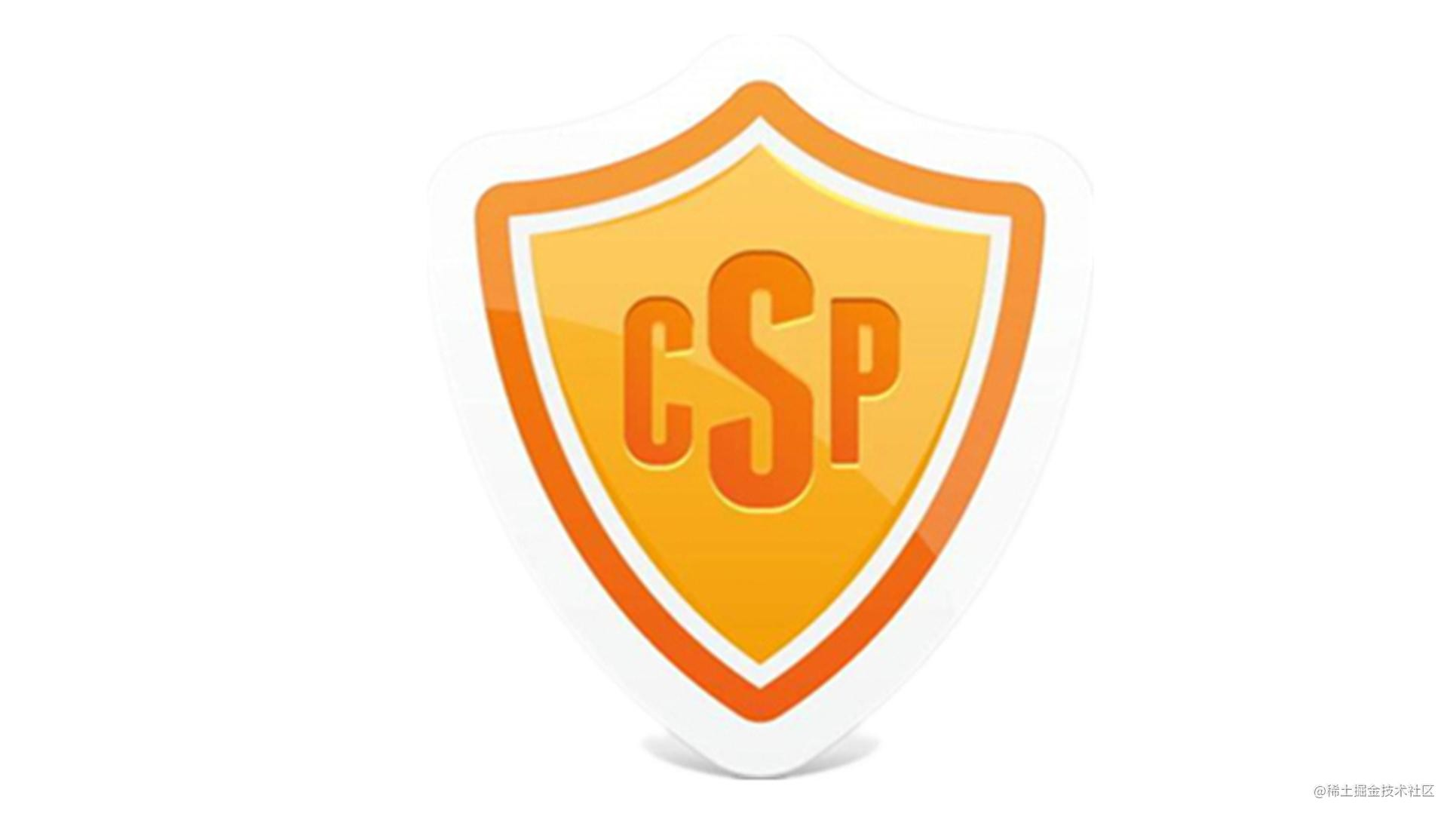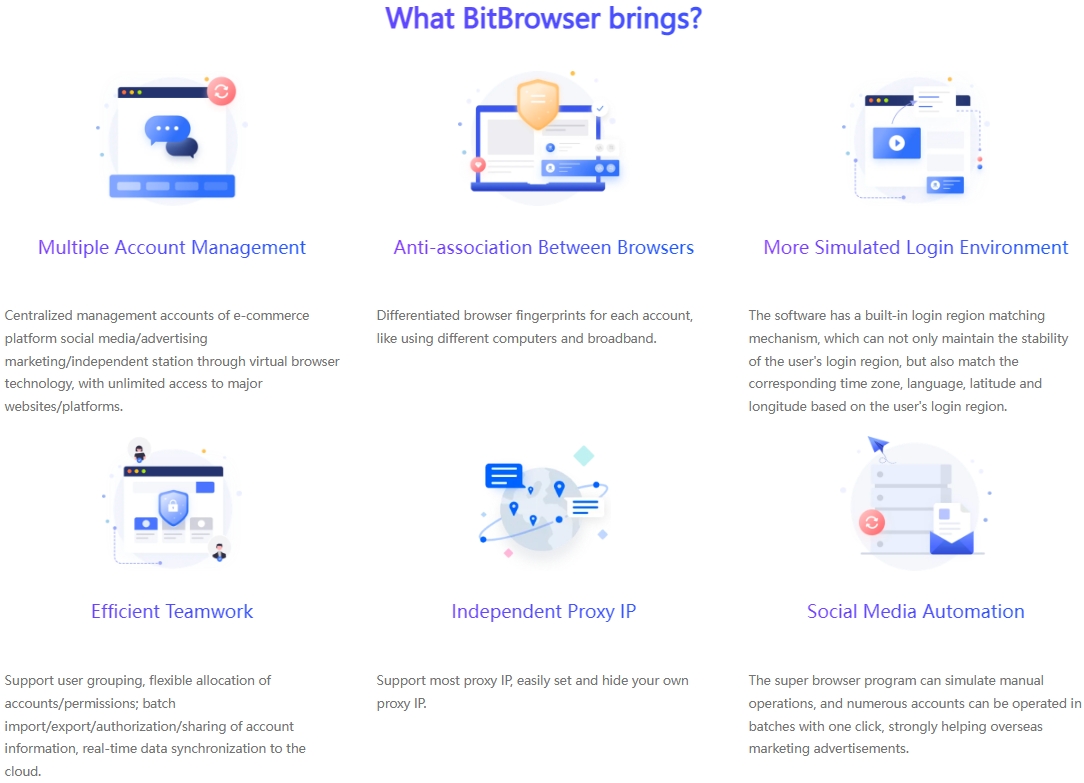
Hot Picks
How to run Facebook ads in 2025? Ideas

Hot Picks
How to promote on Amazon? Sharing various promotion methods

Hot Picks
Choose BitBrowser for fingerprint browsers, and look for the only official website: bitbrowser.cn
What is a Content Security Policy (CSP)? What risks does it bring while protecting security?
Time: 2024-05-09 18:15 Click:
Several advanced technologies are becoming standard because they significantly enhance the security of websites and the people who use them. Security protection is an additional layer of protection that can help browsers resist certain network attacks, and it has been widely accepted as a basic security measure for all websites and browsers. What is the purpose of security protection mechanisms in the first place? What risks do security measures like this pose to online privacy? And what are the best ways to deal with this risk? Before we delve into these questions, we You need to understand why security protection mechanisms are so important. For those who decide to ignore security protections entirely, they also need to be clear about the various threats involved.

Same Origin Policy (SOP)
The Same Origin Policy (SOP) is a key concept in the field of network security. Its main purpose is to prevent malicious websites from accessing or tampering with the data of other websites. The core of the same-origin policy is that a script in one web page cannot access or change data from another web page with a different origin. The "source" here usually consists of protocol, domain name and port. For example, when a user browses a webpage at www.firebrowser.cn, if the webpage attempts to access resources (such as cookies or JavaScript scripts) on www.bitbrowser.cn, the same origin policy will prevent such cross-origin access. This mechanism effectively prevents malicious websites from using users' identity information on other websites to conduct illegal activities.
Cross-site scripting (XSS) attacks

However, although the same origin policy provides basic guarantees for network security, attackers have found ways to break through it. This is a cross-site scripting (XSS) attack. The core of a cross-site scripting attack is to inject malicious scripts into a trusted website. When other users visit the website, the malicious scripts will be executed in the user's browser, thereby stealing the user's sensitive information or performing other malicious behaviors. Cross-site scripting attacks are possible because many websites do not handle user input carefully enough, allowing attackers to insert malicious scripts into the website's HTML code. When other users visit the page, the browser executes these malicious scripts because they appear to come from a trusted website.
What is Content Security Policy (CSP)?

In order to deal with cross-site scripting attacks and other similar security threats, Content Security Policy (CSP) came into being. Content Security Policy is a security mechanism that allows website administrators to explicitly specify which external resources (such as scripts, stylesheets, etc.) can be loaded and executed. With the help of content security policy, the website can establish a whitelist, and only the resources on the whitelist will be loaded and executed by the browser.
When a browser loads a website that has a content security policy, it checks against the policy and determines which resources can be loaded. If the source of a resource is not on the whitelist, the browser will prevent the resource from loading and may even issue a warning to the user. This mechanism effectively prevents the injection and execution of malicious scripts, thereby improving the security of the website.
Although content security policy plays an important role in ensuring website security, it does not by itself have a negative impact on online privacy. On the contrary, by restricting the loading and execution of external resources, content security policies help reduce the risk of user privacy leaks. For example, when malicious scripts attempt to steal users' cookies or other sensitive information through cross-site scripting attacks, content security policies can prevent the execution of these scripts, thereby protecting user privacy.
However, it is important to note that content security policies cannot completely solve all issues related to online privacy. Users still need to remain vigilant, avoid entering sensitive information on untrustworthy websites, and regularly update and review their privacy settings.
The impact of CSP on privacy and its response strategies
Content Security Policy (CSP) is undoubtedly a major advancement in the field of network security. It effectively resists network attacks such as cross-site scripting (XSS) by limiting the types of content that web pages can load and execute. However, just like many security measures, while CSP improves security, the implementation of CSP may also interfere with users' privacy protection strategies. Some popular privacy protection extensions, such as User Agent Switcher and Random Agent Spoofer, rely on injecting JavaScript scripts into web pages to change browser fingerprints or bypass tracking. However, these extensions may not work properly on CSP-enabled sites because CSP blocks script execution that is not on the whitelist.
How to protect your online privacy while enjoying website security?
1. Understand and use privacy extensions that support CSP
While traditional privacy extensions may be restricted by CSP, there are also new privacy extensions designed specifically for CSP that can provide privacy protection while complying with CSP.
2. Use multi-browser configuration
By using different configurations and extensions in different browsers, users can better balance security and privacy. For example, in scenarios that require a high degree of privacy protection, you can use a browser without CSP; and in scenarios that require higher security, you can use a browser with CSP enabled.
3. Use proxies and VPNs
Using a proxy server or VPN can further protect users’ online privacy. By hiding a user’s true IP address and browsing behavior, proxies and VPNs reduce the risk of a user being identified and tracked.
4. Bitbrowser fingerprint browser

Bitbrowser fingerprint Browser achieves this goal by creating multiple virtual browser environments with unique browser fingerprints, an online tracking technology that collects browser and device-specific information (such as screen resolution, user agent, operating system, installed plug-ins, fonts, language settings, etc.) to identify and track users. In Bitbrowser fingerprint Browser, each virtual browser environment has a different fingerprint, which makes each account look like Logins from different devices prevent CSPs from degrading online privacy risks.
Summarize:
Content security policy does play a certain role in security protection and can prevent data injection attacks to a certain extent. However, the CSP 1.1 policy has a major flaw, which may render privacy protection measures useless. To prevent XSS attacks while maintaining a high level of privacy, the best way is to use fingerprint-based Browsers with management functions, such as BitBrowser, download BitBrowser now and get 10 permanently free windows immediately.

 Multi-Account Management
Multi-Account Management Prevent Account Association
Prevent Account Association Multi-Employee Management
Multi-Employee Management



